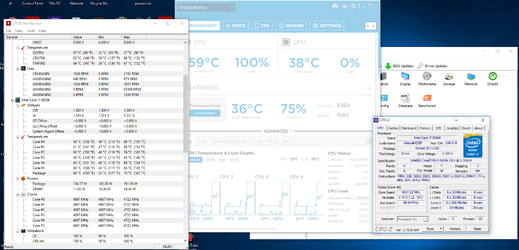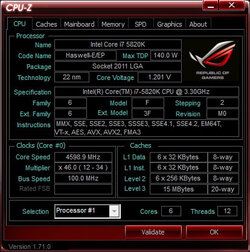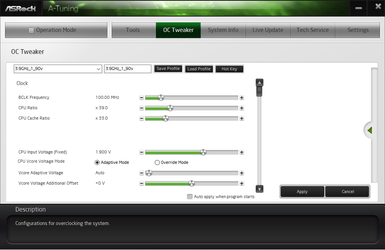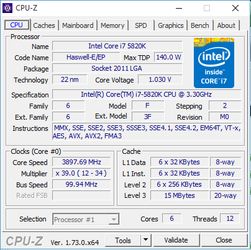You don't have to increase any voltage except memory up to 3000+. IMC is strong enough to run so high without any changes.
On non-OC socket boards you are limited to 3500-3700 cache clock. Nothing will help. Still at ~3500+ you have to raise cache voltage while on boards with oc socket it's not really necessary.
All other voltages take some part in overclocking above ~4.7GHz. Depends from chip.
On non-OC socket boards you are limited to 3500-3700 cache clock. Nothing will help. Still at ~3500+ you have to raise cache voltage while on boards with oc socket it's not really necessary.
All other voltages take some part in overclocking above ~4.7GHz. Depends from chip.



